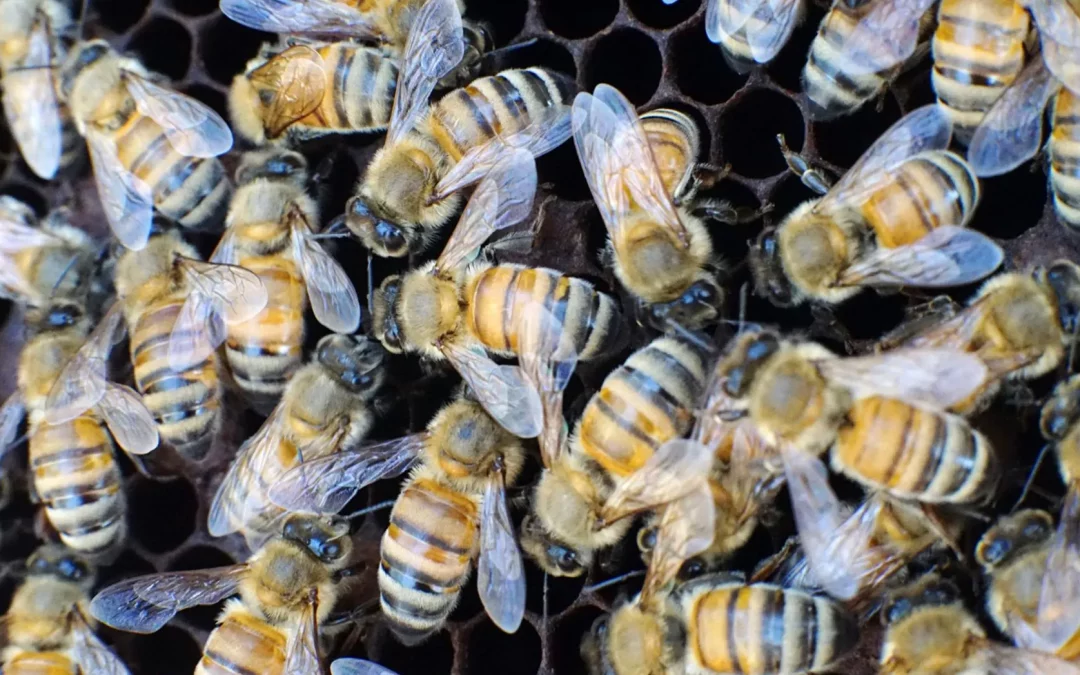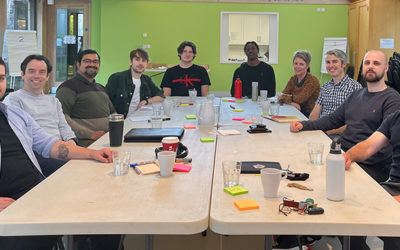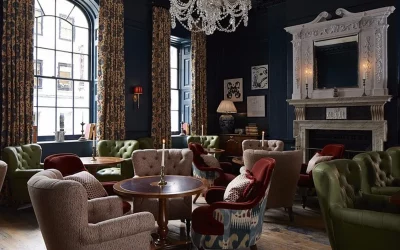They have smelly feet, hairy eyes, and a brain the size of a grain of sugar. Yet bees form an essential part of our ecosystem, and if they didn’t exist, our world would be a very different place.
Bees are some of the most important pollinators, ensuring food and food security, sustainable agriculture, and biodiversity, and they significantly contribute to the mitigation of climate change and the conservation of the environment.
Almost 90% of wild plants and 75% of leading global crops depend on animal pollination and one out of every three mouthfuls of our food depends on pollinators such as bees. It has been estimated that if wild bees disappeared, it could cost UK farmers £1.8bn a year to pollinate crops manually, subsequently increasing the price of many of the foods we eat every day.
Worryingly, bee populations are in rapid decline. There are a number of reasons that are contributing to this, including pesticides, disease and parasites, invading species, habitat loss for bees to forage and shelter, and climate change.
They’ve got it tough, and that’s where we need to do our part and help #savethebees.
Go pesticide free
Pesticides are harmful to humans if consumed, yet we use them in abundance. From ensuring our lawns are weed free, to keeping slugs off our homegrown veggies. Research shows that neonicotinoid pesticides linger in the nectar and pollen of flowers, where bees are most likely to come into contact with them. These treatments weaken bee immune systems and make them more susceptible to disease and infestation by pests.
Plant for bees and pollinators
When pollinating flowers are scarce, bees can starve. By growing bee friendly plants, you can provide them with rich sources of nectar and nutritious food sources, helping to keep the bee strong and healthy.
Offer bees and pollinators a drink
And no, we’re not talking about a pint down your local. Being a bee is thirsty work. A pond or a small dish of water with some pebbles for easy access can go a long way and will give bees and other insects a chance to have a drink. This is especially important in the hot summer months.
Build a bee and bug hotel
Many bee species are actually solitary and make their nests in small holes and hollows in plants and trees. Building a safe space for these bees to nest can be crucial to help them rest up.
Become an ally to the bees
Spread the word to your friends, family, and colleagues on the importance of bees for our planet. Raising awareness is equally as important as the physical acts of help. The more people that understand the roles that bees play in our ecosystems, the more likely people are to take action.
It’s no understatement to say that bees lie at the heart of our survival, and if we’re helping them, we’re helping the future of this planet.

IMPACT PROVEN THROUGH RESULTS
WE TURN ESG INTO
COMPETITIVE ADVANTAGE










































